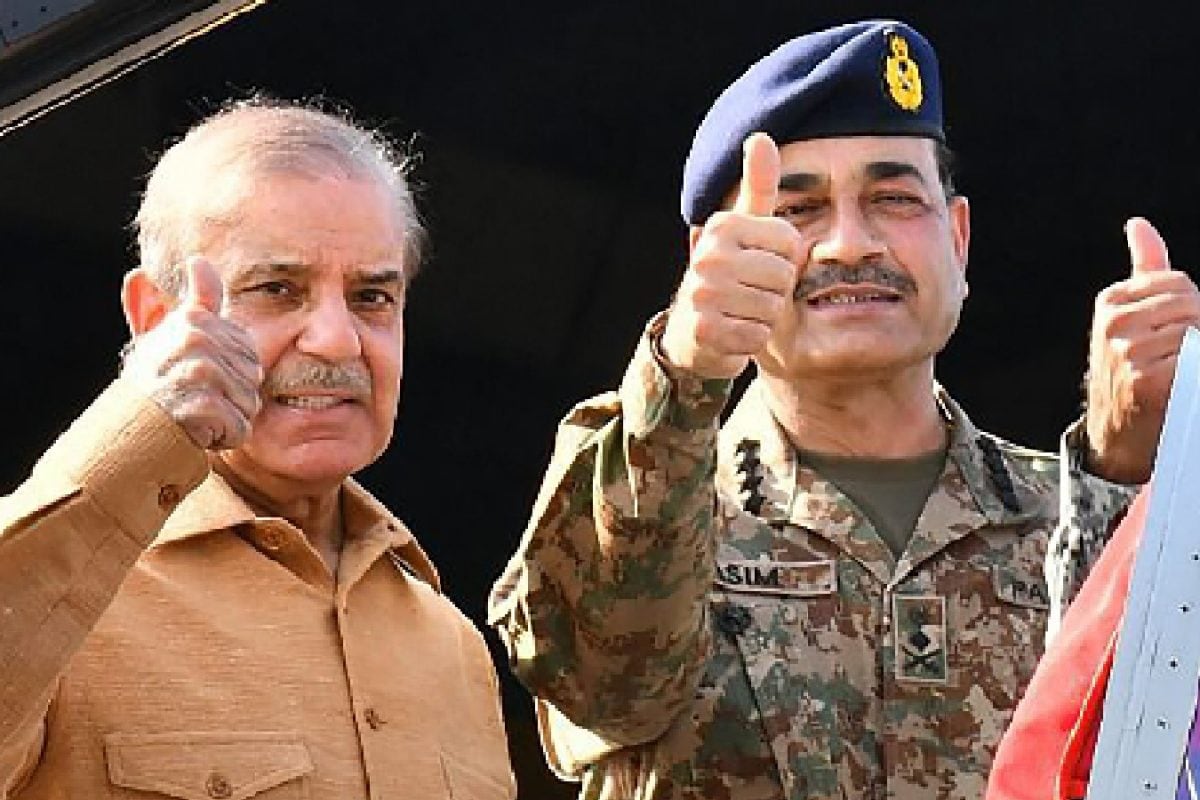World
Shehbaz Sharif Exposes Military Dominance in Pakistan’s Governance

In a significant admission, Pakistan’s Prime Minister Shehbaz Sharif has openly acknowledged the pivotal role of the military in the country’s governance. This revelation underscores the long-held belief that Pakistan operates under a hybrid political system where civilian leaders are often subordinate to military authority. Sharif’s comments highlight the extent to which the military influences key national decisions, including foreign policy and economic negotiations, particularly with the International Monetary Fund (IMF).
During his recent remarks, Sharif stated that all major decisions involve close consultation with the military chief, Field Marshal Asim Munir. He emphasized that discussions regarding foreign policy, economic strategies, and IMF negotiations are collaborative efforts, saying, “We discuss foreign policy, economy, and IMF issues. It’s teamwork, and we work day and night with sincerity and smooth coordination.” This statement reflects a reality where the military’s role is not just influential but central to governance in Pakistan.
Implications of the Admission
The Prime Minister’s acknowledgment aligns with earlier statements made by Khawaja Asif, Pakistan’s Defence Minister, during the United Nations General Assembly (UNGA). Asif had previously outlined the military’s significant role in shaping governance, reinforcing the notion that the civilian government operates more as a façade rather than a governing body with autonomous power. This partnership between the military in Rawalpindi and the civilian leadership in Islamabad raises questions about the effectiveness of Pakistan’s democratic institutions.
For many observers, this admission reinforces the perspective that Pakistan is effectively an “army state,” where military leaders dictate critical decisions. This view has been a long-standing narrative in India, which sees Pakistan’s civilian apparatus as increasingly incapable of independent function. The implications of Sharif’s remarks extend beyond domestic politics, potentially affecting Pakistan’s international standing and relationships, particularly with financial institutions like the IMF.
Challenges Ahead for Pakistan’s Governance
The timing of these admissions is particularly critical as Pakistan grapples with significant financial challenges. Currently, the nation is under immense pressure, heavily reliant on international financial support. The influence of the military in negotiations with the IMF could hinder Pakistan’s credibility with international lenders, especially when the perception is that the military dominates governance.
Sharif’s framing of the military-civilian relationship as “smooth coordination” further highlights the fragility of Pakistan’s political landscape. It suggests that the civilian government may lack the strength to operate independently, complicating efforts for democratic reform and institutional stability. The public acknowledgment of a “hybrid regime” not only confirms longstanding international assessments but also suggests that the path forward for Pakistan will likely continue to be shaped by military priorities rather than democratic processes.
As Pakistan moves forward, the question remains whether the civilian government can reclaim its authority or if the military’s pervasive influence will solidify its role in the country’s governance. The ongoing dialogue between Sharif and Munir will undoubtedly continue to be scrutinized as Pakistan navigates its complex political and economic challenges.
-

 World5 months ago
World5 months agoSBI Announces QIP Floor Price at ₹811.05 Per Share
-

 Lifestyle5 months ago
Lifestyle5 months agoCept Unveils ₹3.1 Crore Urban Mobility Plan for Sustainable Growth
-

 Science4 months ago
Science4 months agoNew Blood Group Discovered in South Indian Woman at Rotary Centre
-

 World5 months ago
World5 months agoTorrential Rains Cause Flash Flooding in New York and New Jersey
-

 Top Stories5 months ago
Top Stories5 months agoKonkani Cultural Organisation to Host Pearl Jubilee in Abu Dhabi
-

 Sports4 months ago
Sports4 months agoBroad Advocates for Bowling Change Ahead of Final Test Against India
-

 Science5 months ago
Science5 months agoNothing Headphone 1 Review: A Bold Contender in Audio Design
-

 Top Stories5 months ago
Top Stories5 months agoAir India Crash Investigation Highlights Boeing Fuel Switch Concerns
-

 Business5 months ago
Business5 months agoIndian Stock Market Rebounds: Sensex and Nifty Rise After Four-Day Decline
-

 Sports4 months ago
Sports4 months agoCristian Totti Retires at 19: Pressure of Fame Takes Toll
-

 Politics5 months ago
Politics5 months agoAbandoned Doberman Finds New Home After Journey to Prague
-

 Top Stories5 months ago
Top Stories5 months agoPatna Bank Manager Abhishek Varun Found Dead in Well









